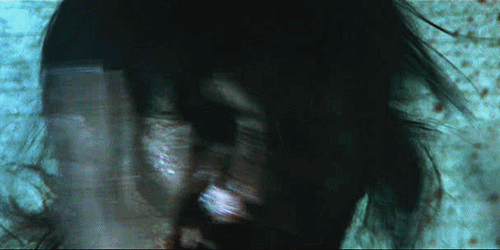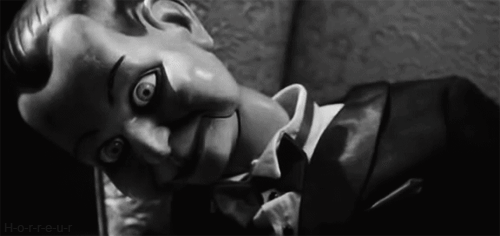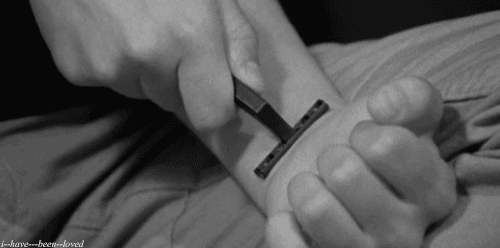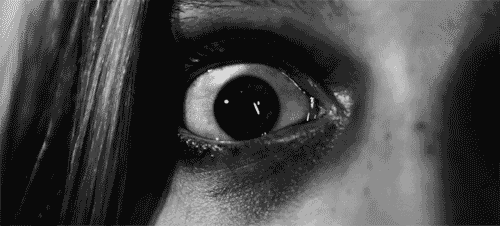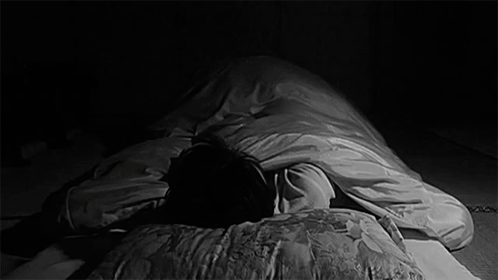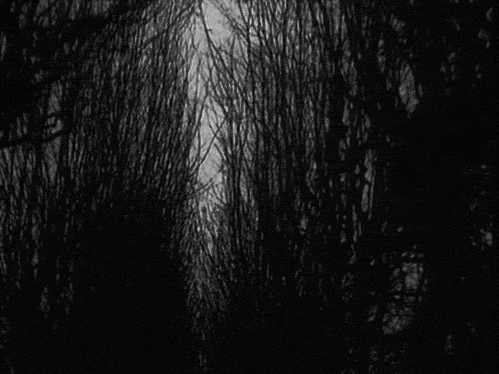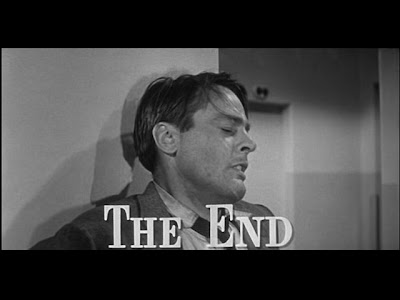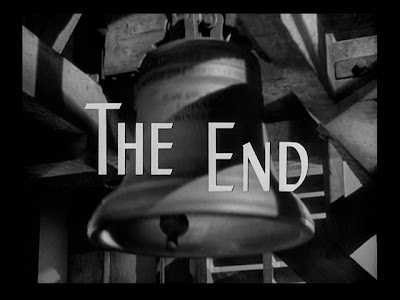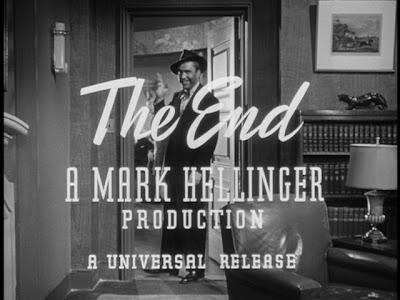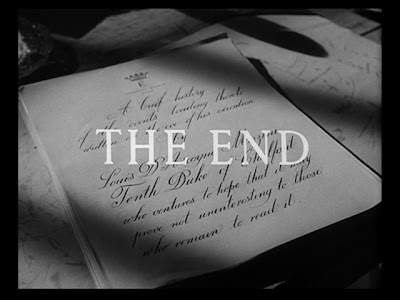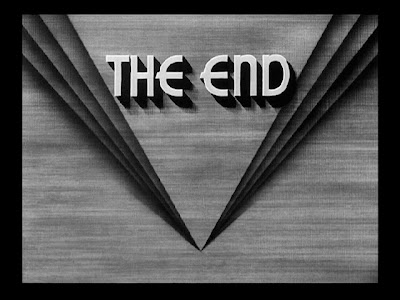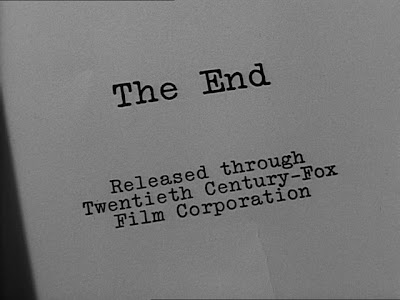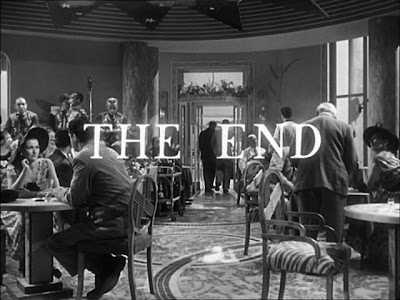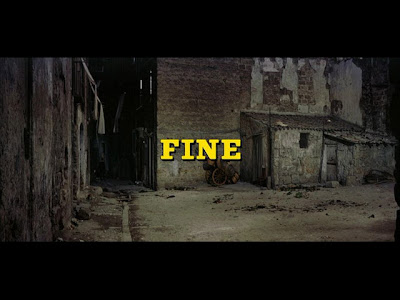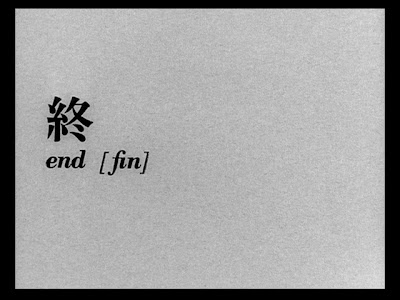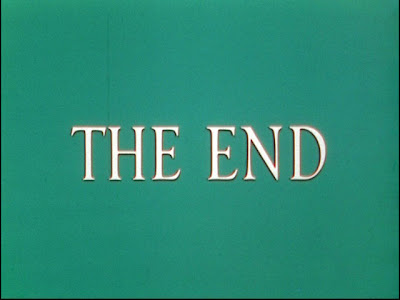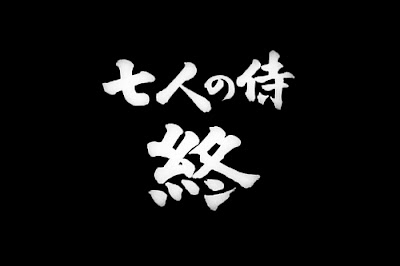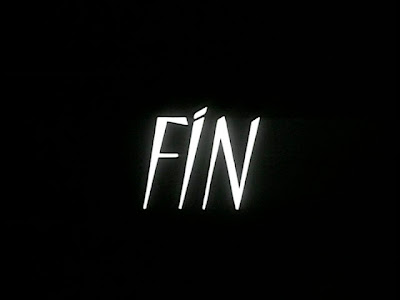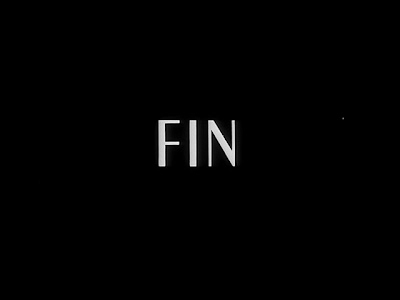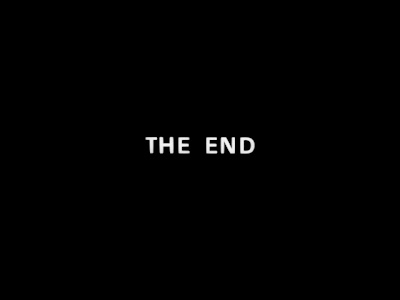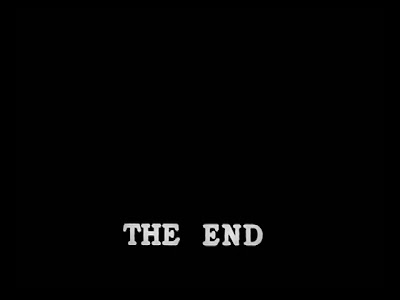----

portrait of Jarry by Felix Vallotton
Alfred Jarry.
1873–1907: thirty-four years.
French dramatist, poet, novelist, journalist, graphic artist, theatrical designer.
Jarry's play Ubu roi (according to the Concise Oxford Companion to the Performing Arts) is now considered the founder-play of the modern avant-garde theatre. Written when Jarry was 15 years old and first performed in 1888 as a marionette play, it was given its first live stage production in 1896. A savagely funny revolt against society and the conventions of the naturalistic theatre, it scandalized audiences in 1896 and still has considerable impact. Père Ubu, vicious, cowardly, coarse, pompously cruel, and unashamedly amoral, is a farcical prototype of the later anti-hero of the nuclear age. Many of the marionette elements in the play, expressly demanded by Jarry in his stage instructions, have become common currency in the work of playwrights such as Genet and Ionesco and directors such as Brecht and Planchon: the use of masks, skeleton sets, crude pantomime, and stylized speech to establish character, gross farce and slapstick elements, placards indicating scene changes, cardboard horses slung round actors' necks, and similar unrealistic props.
Ubu roi provoked a riot and closed after one night.
Its bizarre, anarchic hero did not go away.
----Ubu roi provoked a riot and closed after one night.
Its bizarre, anarchic hero did not go away.
Jarry was by this time acting him out in real life.
He turns up at a party in André Gide's novel The Counterfeiters.
"Who is that?" asked Bernard.
"What! Don't you know the author of Ubu roi?"
"Who is that?" asked Bernard.
"What! Don't you know the author of Ubu roi?"
"Not possible! That Jarry? I took him for a servant."
"Oh, all the same," said Olivier, a little vexed, for he took pride in his great men. "Look at him more carefully. Don't you think he's extraordinary?"
"Oh, all the same," said Olivier, a little vexed, for he took pride in his great men. "Look at him more carefully. Don't you think he's extraordinary?"
"He does all he can to appear so," said Bernard, who only esteemed what was natural, and who nevertheless was full of consideration for Ubu.
Everything about Jarry, who was got up to look like the traditional circus clown, smacked of affectation—his way of talking in particular; several of the Argonauts did their utmost to imitate it, snapping out their syllables, inventing odd words, and oddly mangling others; but it was only Jarry who could succeed in producing that toneless voice of his—a voice without warmth or intonation, or accent or emphasis.
"When one knows him, he is charming, really," went on Olivier.
"I prefer not to know him. He looks ferocious."
"Oh, that's just the way he has. Passavant thinks that in reality he is the kindest of creatures. But he has drunk a terrible lot tonight; and not a drop of water, you may be sure—nor even of wine; nothing but absinthe and spirits. Passavant's afraid he may do something eccentric."
The scene ends in violence.
Jarry began each day (according to his close friend, the writer Marguerite Vallette-Eymery, known by her pen name Rachilde) by imbibing two liters of white wine, three absinthes spaced between 10:00 am and noon; then, at lunch, he washed down his fish or his steak with red or white wine, alternating with more absinthes. In the afternoon, a few cups of coffee fortified with brandy or spirits of which I forget the names; then, at dinner, after, of course, other aperitifs, he could still tolerate at least two bottles of any vintage, of good or bad quality. However, I never saw him really drunk, except once when I aimed at him with his own revolver, which sobered him up immediately. Personally drinking nothing but absolutely pure water, it was me whom Jarry considered a frightful phenomenon.
"When one knows him, he is charming, really," went on Olivier.
"I prefer not to know him. He looks ferocious."
"Oh, that's just the way he has. Passavant thinks that in reality he is the kindest of creatures. But he has drunk a terrible lot tonight; and not a drop of water, you may be sure—nor even of wine; nothing but absinthe and spirits. Passavant's afraid he may do something eccentric."
The scene ends in violence.
Jarry began each day (according to his close friend, the writer Marguerite Vallette-Eymery, known by her pen name Rachilde) by imbibing two liters of white wine, three absinthes spaced between 10:00 am and noon; then, at lunch, he washed down his fish or his steak with red or white wine, alternating with more absinthes. In the afternoon, a few cups of coffee fortified with brandy or spirits of which I forget the names; then, at dinner, after, of course, other aperitifs, he could still tolerate at least two bottles of any vintage, of good or bad quality. However, I never saw him really drunk, except once when I aimed at him with his own revolver, which sobered him up immediately. Personally drinking nothing but absolutely pure water, it was me whom Jarry considered a frightful phenomenon.
Jarry wrote,
We thought we had settled once and for all this question of alcoholism, and that all sensible people understood that the use, and even more the abuse, of fermented beverages was what distinguishes men from beasts.
Jarry also wrote,
Anti-alcoholics are unfortunates in the grip of water, that terrible poison, so solvent and corrosive that out of all substances it has been chosen for washings and scourings, and a drop of water, added to a clear liquid like absinthe, muddies it.
Jarry liked to carry firearms.
He wrote to Rachilde,
It is one of the great joys of homeownership to fire a pistol in one's own bedroom.
We thought we had settled once and for all this question of alcoholism, and that all sensible people understood that the use, and even more the abuse, of fermented beverages was what distinguishes men from beasts.
Jarry also wrote,
Anti-alcoholics are unfortunates in the grip of water, that terrible poison, so solvent and corrosive that out of all substances it has been chosen for washings and scourings, and a drop of water, added to a clear liquid like absinthe, muddies it.
Jarry liked to carry firearms.
He wrote to Rachilde,
It is one of the great joys of homeownership to fire a pistol in one's own bedroom.
One time, in a backyard (according to André Breton) Jarry was amusing himself by uncorking champagne with gunshots. A few bullets strayed over the fence, prompting the irruption of the neighbor whose children were playing next door. "Just imagine, if they were hit!"—"Ah!" said Jarry, "not to worry, Madam, we'll simply make you some more."
Jarry's usual way of dressing (according to Roger Shattuck in The Banquet Years) was that of a bicycle racer: tight sweater, short coat, and old trousers tucked into his socks. (As a symbol of great respect at Marcel Schwob's funeral, he pulled them out, something he neglected to do at Mallarmé's funeral, for which he borrowed a pair of Madame Rachilde's bright yellow shoes.) However, the variations were manifold. One night Jarry and his friend Demolder presented themselves at the box office of a light-opera company with a note from the composer entitling them to complimentary seats. Demolder wore a fur cap and carried a shepherd's crook; Jarry wore a dirty white canvas suit and a makeshift paper shirt with the tie painted on in India ink. When the apprehensive house manager seated them in the balcony instead of the orchestra, Jarry took his revenge by complaining, just as the curtain was going up and in a rasping voice audible to the entire house: "I don't see why they allow the audience in the first three rows to come in carrying musical instruments."
Guillaume Apollinaire once called on Jarry at home.
Guillaume Apollinaire once called on Jarry at home.
"Monsieur Jarry?"
"On the third floor and a half," answered the concierge.
The answer astonished me. But I climbed up to where Jarry lived–actually on the third floor and a half. The ceilings of the building had appeared wastefully high to the owner and he had doubled the number of stories by cutting them in half horizontally. This building, which is still standing, had therefore about fifteen floors; but since it rose no higher than the other buildings in the quarter, it amounted to merely the reduction of a skyscraper.
The answer astonished me. But I climbed up to where Jarry lived–actually on the third floor and a half. The ceilings of the building had appeared wastefully high to the owner and he had doubled the number of stories by cutting them in half horizontally. This building, which is still standing, had therefore about fifteen floors; but since it rose no higher than the other buildings in the quarter, it amounted to merely the reduction of a skyscraper.
It turned out that Jarry's place was filled with reductions. This half-floor room was the reduction of an apartment in which its occupant was quite comfortable standing up. But being taller than he, I had to stay in a stoop. The bed was the reduction of a bed; that is to say, a mere pallet. Jarry said that low beds were coming back into fashion. The writing table was the reduction of a table, for Jarry wrote flat on his stomach on the floor. The furniture was the reduction of furniture—there was only the bed. On the wall hung the reduction of a picture. It was a portrait, most of which he had burned away, leaving only the head, which resembled a certain lithograph I know of Balzac. The library was the reduction of a library, and that is saying a lot for it. It was composed of a cheap edition of Rabelais and two or three volumes of the Bibliotheque rose. On the mantel stood a large stone phallus, a gift from Felicien Rops. Jarry kept this member, which was considerably larger than life size, always covered with a violet skullcap of velvet, ever since the day the exotic monolith had frightened a certain literary lady who was all out of breath from climbing three and a half floors and at a loss how to act in this unfurnished cell.
"Is that a cast?" the lady asked.
"No," said Jarry. "It's a reduction."
When Jarry couldn't afford to keep drinking, he took ether.
"No," said Jarry. "It's a reduction."
When Jarry couldn't afford to keep drinking, he took ether.
He went without eating at times.
He got progressively weaker.
Then he disappeared.
A couple of friends tried to find him at home, where (Shattuck again) they knocked for a long time before they heard Jarry feebly reply that he was coming. He never came. Knocking again and again to rouse him, they asked if they should send for a locksmith. From inside Jarry answered at last in barely audible tones that "it might not be such a bad idea after all." They found him in a state of complete paralysis from the waist down, lying helpless in his reduction of a room. At the hospital (he worried immediately who would pay expenses) no hope was offered for his life. He revived enough to receive visits from a few friends. But Jarry's memory and his lucidity declined rapidly. One friend was so distressed to see his frightful condition that he had to turn away from the bed to hide his emotion. For the last time, Père Ubu rose with august dignity out of the ashes of Jarry and said gruffly: "Well, Polti, aren't you feeling well today?" Paul Léautaud relates that he spent several of his last days in a semicoma muttering over and over the never-completed phrase, "Je cherche... je cherche... j'ch... j'ch..." (I need...). He became lucid for a brief time at the end and asked for—a toothpick. Dr. Saltas hurried out to buy a box. When Jarry finally had one in his fingers, Saltas writes, "It seemed as if he were suddenly filled with great joy as on the days he went off fishing or on a canoe or bicycle trip. I barely stepped aside to speak to the nurse when she signalled me to turn around. He was drawing his last breath."
![]()
Jarry wrote,
Why should anyone claim that the shape of a watch is round—a manifestly false proposition, since it appears in profile as a narrow rectangular form, elliptic on three sides?
He got progressively weaker.
Then he disappeared.
A couple of friends tried to find him at home, where (Shattuck again) they knocked for a long time before they heard Jarry feebly reply that he was coming. He never came. Knocking again and again to rouse him, they asked if they should send for a locksmith. From inside Jarry answered at last in barely audible tones that "it might not be such a bad idea after all." They found him in a state of complete paralysis from the waist down, lying helpless in his reduction of a room. At the hospital (he worried immediately who would pay expenses) no hope was offered for his life. He revived enough to receive visits from a few friends. But Jarry's memory and his lucidity declined rapidly. One friend was so distressed to see his frightful condition that he had to turn away from the bed to hide his emotion. For the last time, Père Ubu rose with august dignity out of the ashes of Jarry and said gruffly: "Well, Polti, aren't you feeling well today?" Paul Léautaud relates that he spent several of his last days in a semicoma muttering over and over the never-completed phrase, "Je cherche... je cherche... j'ch... j'ch..." (I need...). He became lucid for a brief time at the end and asked for—a toothpick. Dr. Saltas hurried out to buy a box. When Jarry finally had one in his fingers, Saltas writes, "It seemed as if he were suddenly filled with great joy as on the days he went off fishing or on a canoe or bicycle trip. I barely stepped aside to speak to the nurse when she signalled me to turn around. He was drawing his last breath."

Jarry wrote,
Why should anyone claim that the shape of a watch is round—a manifestly false proposition, since it appears in profile as a narrow rectangular form, elliptic on three sides?
He also wrote,
It is a human superstition that, when one wishes to communicate with friends temporarily at a distance, one should toss into ad hoc openings similar to sewer holes the written expression of one's feelings, after having encouraged the postmaster with a small donation and received in return some little images, no doubt blessed, which one devoutly kisses on the back. This is not the place to criticize the incoherence of these maneuvers; it is beyond argument that they make possible communication across great distances.
It is a human superstition that, when one wishes to communicate with friends temporarily at a distance, one should toss into ad hoc openings similar to sewer holes the written expression of one's feelings, after having encouraged the postmaster with a small donation and received in return some little images, no doubt blessed, which one devoutly kisses on the back. This is not the place to criticize the incoherence of these maneuvers; it is beyond argument that they make possible communication across great distances.
And he also wrote,
To keep up even a worthwhile tradition means vitiating the idea behind it, which must necessarily be in a constant state of evolution: it is mad to express new feelings in a mummified form.
And in addition he wrote,
We shall not have succeeded in demolishing everything unless we demolish the ruins as well. But the only way I can see of doing that is to use them to put up a lot of fine, well-designed new buildings.
![]()
Jarry wrote a short prose piece called "The Passion Considered as an Uphill Bicycle Race."
To keep up even a worthwhile tradition means vitiating the idea behind it, which must necessarily be in a constant state of evolution: it is mad to express new feelings in a mummified form.
And in addition he wrote,
We shall not have succeeded in demolishing everything unless we demolish the ruins as well. But the only way I can see of doing that is to use them to put up a lot of fine, well-designed new buildings.

Jarry wrote a short prose piece called "The Passion Considered as an Uphill Bicycle Race."
It begins like this:
Barabbas, slated to race, was scratched.
Pilate, the starter, pulling out his clepsydra or water clock, an operation which wet his hands unless he had merely spit on them—Pilate gave the send-off.
Barabbas, slated to race, was scratched.
Pilate, the starter, pulling out his clepsydra or water clock, an operation which wet his hands unless he had merely spit on them—Pilate gave the send-off.
Jesus got away to a good start.
You can read more here.
![]()
Jarry illustrated and ornamented his own books.

Jarry illustrated and ornamented his own books.
He also published and edited two journals of graphic art.
Here are some samples of his print work from a 1998 exhibit.
![]()
![]()
![]()
![]()
![]()
![]()
![]()
![]()
![]()
![]()
![]()
You can see more here.











You can see more here.
Père Ubu, the hero of Ubu roi (according to a post at How Books Got Their Title) is one of the most alluringly disgusting characters in the history of theatre. Enormously fat and ugly, wearing a strange costume with a spiral painted on his paunch, continually shouting orders, he is a living marionette, a sort of cross between Mr Punch and the Emperor Bokassa. As Ubu roi opens we witness him plotting to depose the King of Poland. Beside him are his henchmen and his wife, the slatternly Mère Ubu. Also at his right hand is a torturing engine called the machine à decerveler, or "de-braining machine" ("See the brains spurt out!" "Soon my wife and I are going to be white with splattered brains!"). His speech is a torrent of schoolboy obscenity, literary-philosophico-scientific nonsense, oaths ("by my green candle!") and baby-talk, much of it all but incomprehensible, even in French.
![]()
Jarry's ideas for the staging of Ubu roi were set out in a letter to the producer.

Jarry's ideas for the staging of Ubu roi were set out in a letter to the producer.
Dear Sir,
...It would be curious, I believe, to produce this play (and at little expense really) in the following manner.
1. A mask for the principal role, Ubu, which I could do for you if necessary. But then I believe you have yourself been involved with this business of masks.
...It would be curious, I believe, to produce this play (and at little expense really) in the following manner.
1. A mask for the principal role, Ubu, which I could do for you if necessary. But then I believe you have yourself been involved with this business of masks.
2. A horse's head of cardboard, which he could hang around his neck as in the old English theater, for the only two equestrian scenes—both these suggestions being in the spirit of the play, since I intended to write a "Guignol" (puppet show).
3. Only one set, or better yet, one catchall backdrop, eliminating raising and lowering the curtain. A suitably costumed person would come in, as in puppet shows, to put up signs indicating the scene. (You see, I am sure that written signs are more "suggestive" than sets. No set or contrivance could portray the Polish army on the march in the Ukraine.)
3. Only one set, or better yet, one catchall backdrop, eliminating raising and lowering the curtain. A suitably costumed person would come in, as in puppet shows, to put up signs indicating the scene. (You see, I am sure that written signs are more "suggestive" than sets. No set or contrivance could portray the Polish army on the march in the Ukraine.)
4. The elimination of crowds, which are often bad on stage and have no intelligible effect. Thus, a single soldier in the review scene, and only one in the great scuffle when Ubu says: "What a horde of people, what a flight, etc."
5. The adoption of an "accent" or better yet, a special "tone of voice" for the principal character.
6. Costumes with as little local color and historical accuracy as possible (it gives the best idea of something eternal); modern ones preferably, since satire is modern; and sordid costumes because they make the action more wretched and repugnant....
![]()
The actor Gémier played the part of Père Ubu.
6. Costumes with as little local color and historical accuracy as possible (it gives the best idea of something eternal); modern ones preferably, since satire is modern; and sordid costumes because they make the action more wretched and repugnant....

The actor Gémier played the part of Père Ubu.
On the opening night he walked out to deliver the play's first line: "Merdre!"
The audience (according to Gene Van Dyke) immediately burst out with a roar. Gémier was "unable to get a word in edgewise for the next fifteen minutes." It was the first time that someone had spoken such a word on the modern stage. Gémier tried to silence the audience by blowing a tramway horn. Many people left the theatre. A fight broke out in the orchestra pit, while Jarry's supporters yelled, "You wouldn't have understood Shakespeare or Wagner either!" Others shouted, "Can't you see that the author is taking us for a bunch of damned fools?" When Gémier had finally gotten slight control of the audience, he spoke the second word―another "Merdre!" Needless to say, the audience started to howl once more. They shouted at the stage and at each other. When things quieted down again, the play proceeded as planned. Smaller outbursts continued throughout the performance. In the days that followed, the violent battle for and against Ubu roi would move on into the Parisian press.
Merdre is the play's special variant of the French word merde.
It has been translated as "Shittr!", "Shitteth!", "Shikt!", "Shee-it!", "Shite!", "Shrit!" and "Pschitt!"
The audience (according to Gene Van Dyke) immediately burst out with a roar. Gémier was "unable to get a word in edgewise for the next fifteen minutes." It was the first time that someone had spoken such a word on the modern stage. Gémier tried to silence the audience by blowing a tramway horn. Many people left the theatre. A fight broke out in the orchestra pit, while Jarry's supporters yelled, "You wouldn't have understood Shakespeare or Wagner either!" Others shouted, "Can't you see that the author is taking us for a bunch of damned fools?" When Gémier had finally gotten slight control of the audience, he spoke the second word―another "Merdre!" Needless to say, the audience started to howl once more. They shouted at the stage and at each other. When things quieted down again, the play proceeded as planned. Smaller outbursts continued throughout the performance. In the days that followed, the violent battle for and against Ubu roi would move on into the Parisian press.
Merdre is the play's special variant of the French word merde.
It has been translated as "Shittr!", "Shitteth!", "Shikt!", "Shee-it!", "Shite!", "Shrit!" and "Pschitt!"
My favorite translation of Ubu roi is by David Ball.
The first act is available online.
The rest of it seems to only be available in a very expensive anthology by Norton.
Ball writes that in translating the play the first step was to find an English equivalent for the suffix -re which ends so many of Jarry's words in Ubu roi, beginning with merdre. And before readers turn to the translation, I would ask them to consider what Jarry announced at the very end of the little speech he gave to present his play in the theatre on opening night: "As for the action, which is about to begin, it takes place in Poland—that is, Nowhere."
The first act is available online.
The rest of it seems to only be available in a very expensive anthology by Norton.
Ball writes that in translating the play the first step was to find an English equivalent for the suffix -re which ends so many of Jarry's words in Ubu roi, beginning with merdre. And before readers turn to the translation, I would ask them to consider what Jarry announced at the very end of the little speech he gave to present his play in the theatre on opening night: "As for the action, which is about to begin, it takes place in Poland—that is, Nowhere."
UBU THE KING
by Alfred Jarry
(translated by David Ball)
ACT I
SCENE ONE
(PAPA UBU, MAMA UBU)
by Alfred Jarry
(translated by David Ball)
ACT I
SCENE ONE
(PAPA UBU, MAMA UBU)
PAPA UBU: (angry) Shitsky!
MAMA UBU: Oh! such language! Papa Ubu, thou art a big bad boy.
PAPA UBU: What stoppeth me from slaying thee, Mama Ubu?
MAMA UBU: It is not I, Papa Ubu, it is someone else who should be assassinated.
MAMA UBU: Oh! such language! Papa Ubu, thou art a big bad boy.
PAPA UBU: What stoppeth me from slaying thee, Mama Ubu?
MAMA UBU: It is not I, Papa Ubu, it is someone else who should be assassinated.
PAPA UBU: By my green candlestick, I understand not.
MAMA UBU: What, Papa Ubu, are you happy with your lot?
PAPA UBU: By my green candlestick, shitsky! my dear, verily, verily, I am happy. A man could be happy with less: captain of the Dragoons, an officer who has the confidence of King Wenceslas, decorated with the Order of the Red Eagle of Poland, and former King of Aragon, what more could you want?
MAMA UBU: What, Papa Ubu, are you happy with your lot?
PAPA UBU: By my green candlestick, shitsky! my dear, verily, verily, I am happy. A man could be happy with less: captain of the Dragoons, an officer who has the confidence of King Wenceslas, decorated with the Order of the Red Eagle of Poland, and former King of Aragon, what more could you want?
MAMA UBU: What! You, who were once King of Aragon, you now think it's good enough to march in a parade at the head of forty attendants armed with cabbage-cutters? when after the crown of Aragon you could place the crown of Poland on your noggin?
PAPA UBU: Ah, Mama Ubu, I can't understand a word you say.
MAMA UBU: You're so dumb!
MAMA UBU: You're so dumb!
PAPA UBU: By my green candlestick, King Wenceslas is still very much alive; and even assuming he dies, does he not have swarms of children?
MAMA UBU: What's stopping you from massacrating the whole family and taking their place?
MAMA UBU: What's stopping you from massacrating the whole family and taking their place?
PAPA UBU: Ah, Mama Ubu, you are insulting me and you will soon get dumped into the lobster-pot.
MAMA UBU: Ah! miserable wretch, if I got dumped into the lobster pot, who then would mend the seat of your pants?
PAPA UBU: Hey, come on! Don't I have an ass like everybody else?
MAMA UBU: If I were you, it's that very ass I'd want to put on a throne. You could get infinitely rich, eat stuffed sausage all the time, and drive through the streets in a horse and carriage.
PAPA UBU: If I were King, I'd have a big cape made like the one I had in Aragon that those rascally Spaniards impudently stole from me.
MAMA UBU: You could also get an umbrella and a big pea-jacket that goes all the way down to your heels.
PAPA UBU: Oh, I'll give in to the temptation. For shitsky's sakesky, for sakesky's shitsky, if I ever meet him somewhere in the woods, he'll have a hard time of it.
PAPA UBU: Hey, come on! Don't I have an ass like everybody else?
MAMA UBU: If I were you, it's that very ass I'd want to put on a throne. You could get infinitely rich, eat stuffed sausage all the time, and drive through the streets in a horse and carriage.
PAPA UBU: If I were King, I'd have a big cape made like the one I had in Aragon that those rascally Spaniards impudently stole from me.
MAMA UBU: You could also get an umbrella and a big pea-jacket that goes all the way down to your heels.
PAPA UBU: Oh, I'll give in to the temptation. For shitsky's sakesky, for sakesky's shitsky, if I ever meet him somewhere in the woods, he'll have a hard time of it.
MAMA UBU: Oh good! Papa Ubu, now you have become a real man.
PAPA UBU: Oh no! a Captain of the Dragoons massacrating the King of Poland! Never! I'd die first!
PAPA UBU: Oh no! a Captain of the Dragoons massacrating the King of Poland! Never! I'd die first!
MAMA UBU: (aside) Oh, shitsky! (to Ubu) So, you will remain poor as a church-rat, Papa Ubu.
PAPA UBU: Oddsbellyzooks, by my green candleskick, I'd rather be poor as a good thin rat than rich as a wicked fat cat.
MAMA UBU: What about the cape? and the umbrella? and the great big pea-jacket?
PAPA UBU: Well, what about them, Mama Ubu? Who needs them? (He exits, slamming the door.)
MAMA UBU: Crapsky, shitsky, he was an old meanie, but crapsky, shitsky, I do think I have shaken him. Thank God!—and myself. In a week I may be Queen of Poland.
MAMA UBU: What about the cape? and the umbrella? and the great big pea-jacket?
PAPA UBU: Well, what about them, Mama Ubu? Who needs them? (He exits, slamming the door.)
MAMA UBU: Crapsky, shitsky, he was an old meanie, but crapsky, shitsky, I do think I have shaken him. Thank God!—and myself. In a week I may be Queen of Poland.
You can read more here.
![]()
Jarry is published in English by Atlas Press in the UK and Exact Change in the U.S.
—Alan
![]()

Jarry is published in English by Atlas Press in the UK and Exact Change in the U.S.
—Alan

*
p.s. Hey. D.l. Alan made this for us a while back, and it's self-evidently awesome, and, hence, its return. Thank you so much again years later, Alan. So, I'm up early today, and I thought I would do a quick p.s.. Things are going really well here. Our book project is happening in a very exciting way, and, yeah, all is very fine. If you're ever in the Loire Valley and checking out castles, make the effort to see Château de Brézé. It's a little out of the way and a less celebrated chateau, but it's probably the best one I've ever visited with a vast, crazy underground network of tunnels and dungeons and etc. ** Wednesday ** Allesfliesst, Hi Kai. Sweet premise for a novel, if you don't me saying so, and, duh, head back into its thick if you get the chance. ** Tosh, Hi, Tosh. Thanks! ** David Ehrenstein, He is, it's true. ** Bill, Hey ho, Bill. So, wait, I guess you're on your way back out west or there and lagged as of today, no? ** 灑瀟, Hi. Mr, Killian does indeed rule. ** Thomas Moronic, Hi, T. Thanks, yes, all goes spectacularly here. Oh, wow, and the Kiddiepunk thing. We'll talk, yes? ** _Black_Acrylic, Hi, Ben. I'm actually being photographed in the medieval apt. for Dazed & Confused tomorrow, so I guess there'll be a view one way or another. When will you hear about the residency application? Best of best of luck. That is a super good haunted doll. I think, hm, maybe I was taken to Medusa's once by Chicago friends. I'll have to try to remember. ** Steevee, Hi. ** Misanthrope, You would never know horses lived here. Well, almost never know. New shoes suck. They should be outlawed. ** Rewritedept, Hi. Well, playing underneath a film projection, which is the same thing essentially, was so ultra-common back in the late 60s it got yawn producing. Hope 'IF' holds you this time. Inherited vinyl is one of the ups of people around you getting old. ** Thursday ** David Ehrenstein, He is, it's true. ** Bill, Grandieux is super worth checking out. My favorite is 'Un Lac'. I saw the Mueck show at Fondation Cartier. It was pretty meh. Mostly his smaller scale works, which never impress me that much, and I came away feeling like the combo of obsessive detailing/realism and purposefully banal subjects was really not very interesting or provoking ultimately. ** Kevin Killian, Hi, Kevin! It was such a giant honor to get to repost your post. Oh, you know, I'm really proud that you want me in the New Narrative book. I really don't have a problem with being thought of as a 'NN' writer at all. It's the one categorization I like and that makes some sense to me. Give me 'NN writer' over 'Downtown Writer' or 'Gay Writer' any day. You can use whatever work of mine you like. I've always liked my 'Square One' too. I know, I was so happy to see that your book won that prize and publication! And such fine judges on top of that! Great! Let me share your ... Everyone, If you're in or near Chicago by chance, play close attention to these words and alert from the great Kevin Killian: '[C]ould I share with your Chicago area friends, or those who might be headed there for the annual Expo Chicago fair, that a small show of my photographs goes up in a new project space on September 20th, and I'll be there too, reading poetry I guess! I'm psyched because I'll be showing with the artist Edie Fake whose drawings I really admire: http://www.nightclubchicago.org/.' Much love to you, Kevin! ** _Black_Acrylic, Finally, on the catalog! I'll get one for myself pronto. ** Steevee, Hi, Steve. ** Martin Bladh, Hi, Martin. Yes, I saw your comment the other day and investigated with Fales, and I was informed about what happened to the pages, and I will write to you at long last to tell you what's going on because it's best not discussed in public at the moment. Thanks! ** 灑瀟, 'White Epilepsy' is very beautiful. Beautiful words and thoughts about Butor! ** Grant maierhofer, Hi, man. I'm really glad the rerun caught your positively unprepared. I'm doing great, thanks. The projects are going very well. Yeah, thanks a lot, buddy, and I'll be curious to hear how the intensive studies go if you get breathers. ** Friday ** Graham Russell, Hi, Graham. 'Swingin' Dors' by Diana Dors is such a great title. I think I only know of her from the reference in the New York Dolls song. You were bitter69uk! Holy shit, it's great to see you here again, man. How's it hanging? ** David Ehrenstein, Ha ha, spectacularly horrid at least. ** Steevee, Hi, Steve. I don't know about that. ** Chilly Jay Chill, Hi, Jeff. So wish I could see that reading. What a superstar packed double bill. Everyone, if you're in/near NYC, attending the following reading is pretty imperative for obvious reasons, and here's one of the readers (Chilly Jay Chill aka Jeff Jackson) to give you the poop: 'Any DLs and blog readers who live in NYC: I'll be reading from my novel "Mira Corpora" this MONDAY (September 9th) at 7 pm at McNally Jackson bookstore in Soho. 52 Prince Street (between Lafayette & Mulberry). I'll be joined by the excellent Justin Taylor, a former blog DL himself. It'd be great to see any of you there! If you come, please be sure to say hello.' Trip's going wonderfully, thanks. Cool re: the post materials, and no problem on your busyness, of course. I'm glad that got sorted out. ** That's the catch up. Sorry for my swiftness, but it's nice to get to 'see' you all. More soon, no doubt. Please enjoy your Jarry/Alan-filled weekend as well as all the parts of your weekend that you end up spending elsewhere.






























































































































































































































